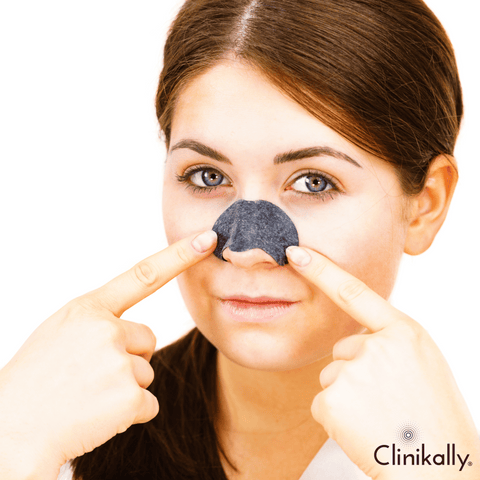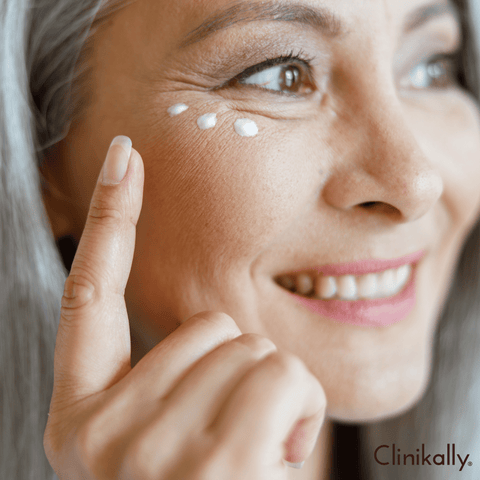Of all the natural ingredients that have been used for centuries to nourish and protect the skin, sunflower oil is one that deserves a special mention. Extracted from the seeds of the sunflower plant, this oil is rich in nutrients and antioxidants that offer a wide range of benefits for your skin. Whether you're dealing with dryness, redness, or signs of aging, sunflower oil can help soothe and rejuvenate your skin. Here are the top 10 benefits of sunflower oil for skin.
-
Moisturizing: Sunflower oil is an excellent moisturizer for the skin. It is easily absorbed by the skin and does not leave a greasy residue, making it perfect for people with oily or combination skin.
-
Antioxidant: Sunflower oil is rich in antioxidants, such as vitamin E and selenium, which help protect the skin from damage caused by free radicals. Free radicals can cause premature aging, fine lines, wrinkles, and other skin problems.
-
Anti-inflammatory: Sunflower oil contains linoleic acid, an essential fatty acid that has anti-inflammatory properties. It can help reduce redness, inflammation, and irritation on the skin.
-
Improves skin barrier function: The fatty acids present in sunflower oil help strengthen the skin's natural barrier, which can improve its ability to retain moisture and protect against environmental stressors.
-
Anti-aging: Sunflower oil is rich in vitamin E, which is known for its anti-aging properties. It can help reduce the appearance of fine lines, wrinkles, and other signs of aging.
-
Soothes skin: Sunflower oil has a calming effect on the skin and can help soothe dry, irritated, or sensitive skin. It can also be used to help alleviate sunburn.
-
Non-comedogenic: Sunflower oil is non-comedogenic, meaning it does not clog pores. This makes it a good option for people with acne-prone skin.
-
Softens skin: Sunflower oil is rich in linoleic acid, which helps soften the skin and improve its texture. It can also be used to soften rough, dry patches of skin.
-
Lightens dark circles: Sunflower oil can be used to lighten dark circles under the eyes. Simply apply a few drops of the oil to the area and massage gently.
-
Improves skin tone: Sunflower oil can help improve skin tone and texture. It can be used to brighten dull skin and reduce the appearance of scars and blemishes.
What is sunflower oil

Sunflower oil is a type of vegetable oil that is extracted from the seeds of the sunflower plant. It is a popular cooking oil due to its mild flavor, high smoke point, and nutritional content. Sunflower oil is commonly used for frying, baking, and sautéing, and it is also used in salad dressings and marinades.
Sunflower oil is rich in healthy unsaturated fats, including polyunsaturated fatty acids such as linoleic acid and monounsaturated fatty acids such as oleic acid. It is also a good source of vitamin E, which is an antioxidant that helps protect cells from damage.
There are different types of sunflower oil available, including refined, unrefined, high oleic, and organic. Refined sunflower oil has been processed to remove impurities and has a neutral taste and high smoke point, making it ideal for cooking. Unrefined sunflower oil is minimally processed and retains more of its natural nutrients and flavor, but it has a lower smoke point and is not as well-suited for high-heat cooking. High oleic sunflower oil is a type of sunflower oil that has been bred to have a higher percentage of oleic acid, making it more stable and resistant to oxidation. Organic sunflower oil is made from sunflower seeds that have been grown without the use of synthetic pesticides or fertilizers.
Sunflower Oil: Benefits for skin

Sunflower oil is a natural oil extracted from the seeds of the sunflower plant. It has numerous benefits for the skin due to its rich nutrient content, including vitamins A, D, and E, as well as essential fatty acids such as linoleic acid and oleic acid.
Here are some benefits of sunflower oil for the skin:
-
Moisturizes the skin: Sunflower oil is a great moisturizer for the skin. It helps to keep the skin hydrated and prevents it from becoming dry and flaky. This is because it is rich in essential fatty acids that help to maintain the skin's natural moisture barrier.
-
Reduces inflammation: Sunflower oil contains antioxidants and anti-inflammatory compounds that can help to reduce inflammation and redness in the skin. This makes it useful for treating skin conditions such as eczema, psoriasis, and rosacea.
-
Improves skin health: Sunflower oil is rich in vitamin E, which is essential for maintaining healthy skin. It helps to prevent oxidative damage to the skin cells and promotes healthy skin growth.
-
Prevents acne: Sunflower oil is non-comedogenic, which means it doesn't clog pores. It can be used to moisturize the skin without causing acne or other breakouts.
-
Protects the skin from sun damage: Sunflower oil contains high levels of vitamin E, which is a natural sun protectant. It helps to protect the skin from the damaging effects of the sun's UV rays and can prevent premature aging.
-
Improves skin texture: Sunflower oil is easily absorbed into the skin and helps to improve its texture. It can be used as a massage oil to promote smooth and soft skin.
Overall, sunflower oil is a natural and effective way to maintain healthy, glowing skin. It is a versatile ingredient that can be used in a variety of skincare products or applied directly to the skin.
It hydrates

Sunflower oil is a type of vegetable oil that is extracted from the seeds of the sunflower plant. While sunflower oil is not typically used for direct hydration of the body, it can be beneficial for the skin when used topically as a moisturizer. Sunflower oil is known to contain high levels of linoleic acid, which is an omega-6 fatty acid that helps to maintain the skin barrier and improve skin hydration.
When applied to the skin, sunflower oil can help to lock in moisture and prevent dryness, which can lead to improved skin hydration. Sunflower oil is also rich in vitamin E, which is an antioxidant that can help to protect the skin from damage caused by free radicals and support skin health.
In summary, while sunflower oil is not typically consumed for direct hydration of the body, it can be a beneficial ingredient in skin care products that aim to improve skin hydration and moisture retention.
It is rich in antioxidants

Yes, sunflower oil is rich in antioxidants, particularly vitamin E. Vitamin E is a fat-soluble antioxidant that helps to protect cells from damage caused by free radicals, which can contribute to the development of chronic diseases such as cancer, heart disease, and Alzheimer's disease.
In addition to vitamin E, sunflower oil also contains other antioxidants such as phenolic acids and flavonoids. These antioxidants help to reduce inflammation in the body and may also help to lower the risk of chronic diseases.
It's important to note that sunflower oil is high in calories and should be consumed in moderation as part of a balanced diet. When using sunflower oil, it's best to opt for cold-pressed or unrefined varieties, as these are less processed and contain higher levels of antioxidants.
It helps to unclog pores

There is no scientific evidence to suggest that sunflower oil helps to unclog pores. In fact, using oil-based products on the skin may actually contribute to clogged pores and breakouts in some people.
While sunflower oil is a natural and nourishing ingredient for the skin, its effectiveness in unclogging pores has not been demonstrated in scientific studies. Other ingredients, such as salicylic acid and benzoyl peroxide, are commonly used in skincare products for their ability to exfoliate the skin and unclog pores.
If you are concerned about clogged pores or acne, it's best to speak with a dermatologist who can recommend a skincare routine that is tailored to your individual needs and skin type.
It minimises the signs of ageing

There is some evidence to suggest that sunflower oil can help reduce the signs of aging. Sunflower oil is high in vitamin E, which is a potent antioxidant that helps to protect the skin from damage caused by free radicals. Free radicals are unstable molecules that can damage cells and accelerate the aging process.
Studies have also shown that sunflower oil can improve skin hydration and skin barrier function, which can help to reduce the appearance of fine lines and wrinkles. However, it's worth noting that the evidence on the anti-aging benefits of sunflower oil is limited, and more research is needed to fully understand its effects.
It's also important to keep in mind that there are many other factors that contribute to the aging process, such as genetics, lifestyle, and environmental factors. While sunflower oil may have some benefits for the skin, it's not a magic bullet for preventing or reversing the signs of aging. A healthy lifestyle that includes a balanced diet, regular exercise, and sun protection is key to maintaining healthy, youthful-looking skin.
It is soothing

Sunflower oil is often praised for its soothing properties due to its high content of linoleic acid, an essential fatty acid that has anti-inflammatory properties. When applied topically, sunflower oil can help to calm and soothe irritated skin, reducing redness, itchiness, and inflammation.
Sunflower oil also contains vitamin E, a powerful antioxidant that can help to protect the skin from damage caused by free radicals. This can help to prevent premature aging and maintain healthy, youthful-looking skin.
Overall, sunflower oil can be a great option for those looking for a natural, gentle way to soothe and nourish their skin. It is often used in skincare products such as moisturizers, serums, and cleansers, and can also be used on its own as a standalone oil for facial and body massage.
It calms skin redness

Sunflower oil may have some properties that can help calm skin redness. Sunflower oil contains a high concentration of linoleic acid, an omega-6 fatty acid that is essential for maintaining a healthy skin barrier. When the skin barrier is compromised, it can lead to inflammation and redness.
In addition to linoleic acid, sunflower oil also contains other nutrients and antioxidants that can help soothe and nourish the skin. For example, sunflower oil is a rich source of vitamin E, a potent antioxidant that can help protect the skin from free radical damage and reduce inflammation.
Overall, while there is some evidence to suggest that sunflower oil may be beneficial for calming skin redness, it is important to note that everyone's skin is different, and what works for one person may not work for another. If you are experiencing skin redness or other skin concerns, it is always best to consult with a healthcare professional or dermatologist for personalized advice and treatment.
It gives even skin tone and texture

Sunflower oil is known to have many benefits for the skin, including improving the skin's overall tone and texture.
Sunflower oil is rich in vitamin E, which is an antioxidant that helps to protect the skin from damage caused by free radicals. It also contains omega-6 fatty acids, which can help to nourish the skin and improve its appearance.
When applied topically to the skin, sunflower oil can help to moisturize and soothe dry, irritated skin. It can also help to reduce the appearance of fine lines and wrinkles, as well as improve the skin's overall texture and tone.
Additionally, sunflower oil has anti-inflammatory properties, which can help to calm and reduce redness in the skin. This makes it a good option for people with sensitive or acne-prone skin.
Overall, while there are many factors that contribute to skin tone and texture, using sunflower oil as part of a regular skincare routine may help to improve the overall appearance and health of the skin.
It is gentle and soft on skin

Sunflower oil can be gentle and soft on the skin, as it is a lightweight and non-greasy oil that is easily absorbed by the skin. It contains essential fatty acids, such as linoleic acid, which can help to nourish and hydrate the skin.
Sunflower oil is also rich in vitamin E, which is a powerful antioxidant that can help to protect the skin from damage caused by free radicals. This can help to reduce the signs of aging, such as fine lines and wrinkles.
Additionally, sunflower oil has anti-inflammatory properties, which can help to soothe and calm irritated skin. It is also non-comedogenic, which means it is unlikely to clog pores and cause breakouts.
Overall, sunflower oil can be a gentle and nourishing oil for the skin. However, it is important to note that everyone's skin is different, so it is always a good idea to do a patch test before using any new skincare product.
It is natural botanical ingredient

Sunflower oil is a type of vegetable oil that is extracted from sunflower seeds, which are a natural botanical ingredient. The sunflower plant, scientifically known as Helianthus annuus, is a member of the daisy family and is native to North America.
Sunflower oil is produced by extracting oil from the seeds of the sunflower plant using a mechanical or chemical extraction process. The resulting oil is a clear, light-yellow liquid that is commonly used in cooking, as well as in the production of skincare products, haircare products, and other cosmetics.
Sunflower oil contains a variety of natural compounds, including fatty acids, antioxidants, and vitamins, which make it a popular choice in natural skincare and haircare products. It is also considered a healthier cooking oil option due to its high content of monounsaturated and polyunsaturated fats, which can help to reduce cholesterol levels and improve heart health.
Does sunflower oil lighten skin?

There is no scientific evidence to suggest that sunflower oil can lighten skin. Sunflower oil is a common ingredient in many skincare products due to its moisturizing and anti-inflammatory properties. However, its benefits are primarily related to improving the skin's overall health and hydration rather than lightening the skin tone.
It is important to note that using any substance to lighten the skin can be potentially harmful and is not recommended without proper medical supervision. Over-the-counter skin lightening products can cause adverse effects such as skin irritation, redness, and uneven skin tone. Therefore, it is always advisable to consult a dermatologist before using any product or treatment for skin lightening purposes.
Sunflower oil for acne skin

Sunflower oil may not be the best option for acne-prone skin as it is considered to be a moderately comedogenic oil, meaning it has the potential to clog pores and cause acne breakouts. However, some people with acne-prone skin may find that sunflower oil works well for them as it can help to balance the skin's natural oil production and provide hydration without causing irritation.
If you are considering using sunflower oil for your acne-prone skin, it is important to choose a high-quality, cold-pressed oil that is free from additives and fragrances. You should also patch test the oil on a small area of your skin before using it on your face to ensure that you do not have an allergic reaction or negative skin reaction.
It is important to note that while natural oils like sunflower oil can be beneficial for some people with acne-prone skin, they are not a substitute for a complete skincare routine that includes cleansing, exfoliating, and using products specifically designed to treat acne. If you are struggling with acne, it is best to consult a dermatologist who can recommend a personalized treatment plan based on your skin type and concerns.
Sunflower oil for dark spots

Sunflower oil is not a proven treatment for dark spots on the skin, also known as hyperpigmentation. While sunflower oil does contain beneficial nutrients like vitamin E and linoleic acid, which can be helpful for overall skin health, there is no scientific evidence to suggest that it can effectively lighten dark spots.
Hyperpigmentation can have various causes, such as UV exposure, hormonal changes, and inflammation. Treatment options for dark spots include topical creams containing ingredients like hydroquinone, retinoids, and alpha-hydroxy acids, as well as cosmetic procedures like chemical peels and laser therapy.
If you are concerned about dark spots on your skin, it is best to consult with a dermatologist who can recommend the most effective treatment options for your individual need
Takeaway: Sunflower oil for soft & supple skin!

Sunflower oil is a natural oil that can provide numerous benefits for your skin, including softness and suppleness. This oil is extracted from sunflower seeds and is rich in nutrients like vitamin C, A, D, and E, as well as essential fatty acids that nourish the skin and help it retain moisture.
Sunflower oil is a light, non-greasy oil that is easily absorbed by the skin, making it an excellent moisturizer for all skin types. It helps to soothe and calm irritated skin, and can also help to reduce the appearance of fine lines and wrinkles.
One of the main benefits of using sunflower oil on your skin is that it is rich in antioxidants. These antioxidants help to protect the skin from free radical damage caused by exposure to the sun and other environmental factors. This can help to reduce the signs of aging and promote a more youthful, radiant complexion.
To use sunflower oil on your skin, simply apply a small amount to your face or body and massage gently until it is absorbed. You can also mix it with other natural ingredients like honey or aloe vera to create a nourishing mask or moisturizer.
Overall, sunflower oil is a natural and effective way to keep your skin soft, supple, and healthy. Whether you have dry, oily, or combination skin, incorporating sunflower oil into your skincare routine can help to improve the look and feel of your skin.
















